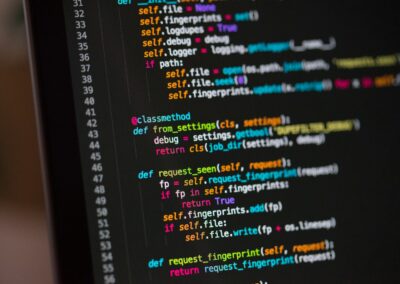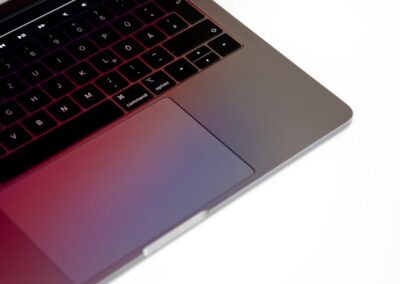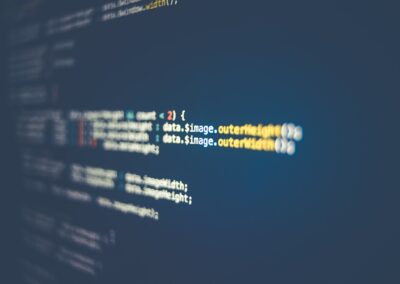Extracting Insights Without Compromising Privacy in Riyadh and Dubai
The Importance of Privacy-Preserving Data Mining in IoT
Implementing privacy-preserving data mining techniques in IoT environments is essential for extracting valuable insights while ensuring that individual privacy is not compromised. As the use of IoT devices expands across various sectors in cities like Riyadh and Dubai, the volume of data collected by these devices increases exponentially. This data can provide critical insights into consumer behavior, operational efficiency, and urban planning. However, the collection and analysis of such data raise significant privacy concerns, particularly when it involves sensitive personal information.
In Riyadh, where smart city initiatives and IoT-driven innovations are gaining momentum, the need to balance data utility with privacy is more pressing than ever. Privacy-preserving data mining techniques allow organizations to analyze vast datasets while ensuring that individuals’ identities remain protected. By anonymizing or encrypting data before analysis, these techniques prevent the exposure of sensitive information, thereby protecting the privacy of Riyadh’s residents. This is particularly important in sectors such as healthcare, where patient data must be handled with the utmost care to comply with privacy regulations and maintain public trust.
Dubai, known for its forward-thinking approach to technology and smart city development, faces similar challenges. As IoT devices become integral to daily life in Dubai, from smart home systems to public transportation, the potential for privacy breaches increases. Privacy-preserving data mining techniques enable the city to harness the power of IoT data without compromising the privacy of its citizens. By implementing these techniques, Dubai can continue to lead in technological innovation while ensuring that data privacy remains a top priority.
Effective Methods for Privacy-Preserving Data Mining
To effectively implement privacy-preserving data mining in IoT environments, organizations in Riyadh and Dubai must adopt specific methods that protect individual privacy while allowing for meaningful data analysis. These methods include differential privacy, secure multi-party computation, and homomorphic encryption, each of which offers unique advantages in protecting data.
Differential privacy is one of the most widely recognized methods for privacy-preserving data mining. It works by adding controlled noise to the data before analysis, ensuring that the results do not reveal any specific individual’s information. In Riyadh, businesses and public entities can use differential privacy to analyze data from IoT devices without risking the exposure of personal details. This method is particularly useful in scenarios where aggregated data is needed for decision-making, such as in smart city planning or public health initiatives. By applying differential privacy, organizations can generate valuable insights while providing strong guarantees of privacy protection.
Secure multi-party computation (SMPC) is another effective method that allows multiple parties to collaboratively analyze data without revealing their individual datasets to one another. In Dubai, where collaborations between various public and private entities are common, SMPC can facilitate data analysis while maintaining confidentiality. For example, different government departments may need to analyze shared IoT data for urban planning purposes. SMPC enables them to do so securely, ensuring that sensitive data remains protected throughout the process. This method not only enhances privacy but also promotes collaboration and data sharing, which are essential for the successful implementation of smart city initiatives.
Homomorphic encryption is a powerful technique that allows data to be encrypted and analyzed without being decrypted. This means that sensitive data can be processed in its encrypted form, ensuring that it remains secure even during analysis. In Riyadh, organizations can use homomorphic encryption to perform complex computations on encrypted IoT data, such as predictive analytics or machine learning, without compromising privacy. Although homomorphic encryption is computationally intensive, advancements in technology are making it more feasible for real-world applications. By leveraging this technique, organizations can maximize data security while extracting valuable insights from IoT datasets.
Balancing Privacy with Data Utility in IoT Environments
While privacy-preserving data mining techniques are essential for protecting individual privacy, it is crucial to balance privacy with the utility of the data. In both Riyadh and Dubai, achieving this balance is key to fully realizing the potential of IoT technologies while safeguarding the rights of individuals.
One approach to balancing privacy and data utility is to adopt a tiered data access model, where different levels of data privacy are applied based on the sensitivity of the data and the intended use. In Riyadh, for example, data collected from public IoT devices in less sensitive areas, such as traffic flow, may be analyzed with minimal privacy-preserving techniques to maximize utility. In contrast, data from healthcare IoT devices would require stricter privacy measures, such as differential privacy or homomorphic encryption, to protect patient information. By tailoring the level of privacy protection to the specific use case, organizations can ensure that they are protecting privacy without unduly limiting the value of the data.
Another important consideration is the transparency of data mining practices. In Dubai, where trust in technology is a key driver of smart city success, organizations should be transparent about how they are using privacy-preserving techniques and what measures are in place to protect individual privacy. Providing clear and accessible information to the public about these practices can help build trust and foster a culture of accountability. This transparency also allows stakeholders to understand the trade-offs between privacy and data utility, ensuring that they are informed participants in the IoT ecosystem.
Executive coaching services can support leaders in Riyadh and Dubai in navigating the complexities of privacy-preserving data mining. Coaches can provide guidance on best practices for data privacy, help leaders understand the implications of different privacy-preserving techniques, and support the development of policies that balance privacy with data utility. By fostering a culture of privacy awareness and proactive data management, executive coaching can help organizations protect individual privacy while fully leveraging the potential of IoT technologies.
In conclusion, implementing privacy-preserving data mining techniques in IoT environments is crucial for extracting insights without compromising privacy in Riyadh and Dubai. By adopting effective methods such as differential privacy, secure multi-party computation, and homomorphic encryption, organizations can protect the privacy of individuals while maximizing the utility of IoT data. Balancing privacy with data utility requires a nuanced approach, including tiered data access models, transparency, and ongoing education for leaders. These efforts will ensure that IoT technologies continue to drive innovation and improve quality of life in these forward-thinking regions.
—
#IoTDataPrivacy #DataSecurity #SmartCities #AIinIoT #BlockchainInIoT #DubaiTech #RiyadhInnovation #BusinessLeadership #ExecutiveCoaching #ModernTechnology































